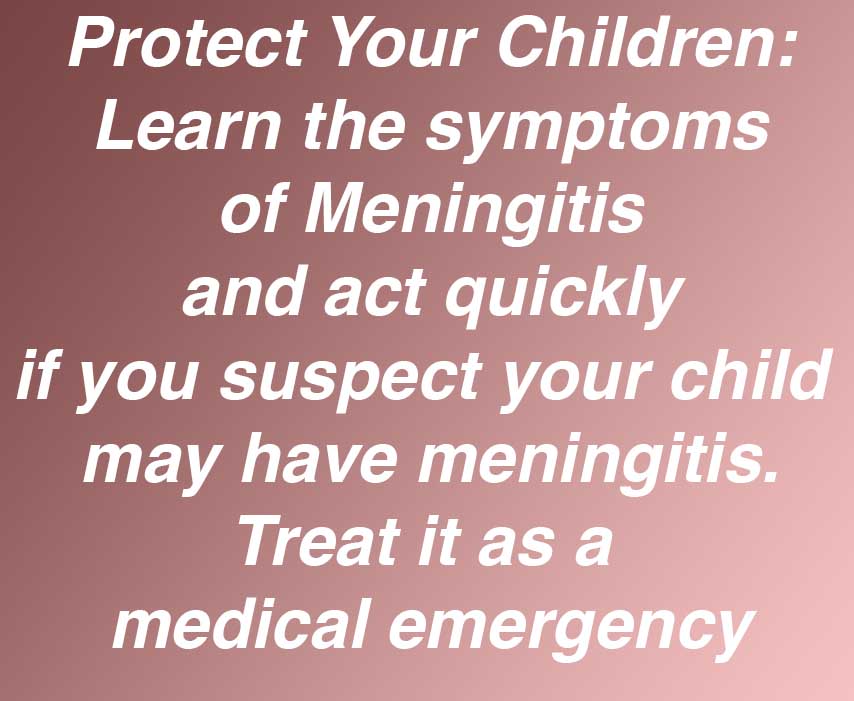Vigilance urged on meningitis says Public Health Agency
The Public Health Agency (PHA) is calling for people to make themselves aware of the signs and symptoms of meningitis, with the prevalence of this potentially life-threatening illness at its highest during the winter.
Louise Flanagan, Consultant in Public Health at the PHA, said: “Meningitis can occur at any time of year, but is seen most frequently in the winter.
“It is a serious disease, so it is vital everyone becomes more vigilant and makes themselves aware of the signs and symptoms of the condition, as a rash is not the only sign to be aware of.
“The symptoms are often non-specific. In the early stages it could be mistaken for other illnesses such as flu, although with meningitis the person tends to be sicker than with these other conditions.

“However, the disease can develop very quickly and it is important to seek urgent medical attention if you think meningitis is a possibility.”
Meningitis is inflammation of the lining around the brain and spinal cord (the meninges) and is usually caused by a bacteria or virus.
Bacterial meningitis is rare but can be serious if left untreated.
It can affect anyone but is most common in babies, young children, teenagers and young adults.
It can be serious if not treated quickly and can lead to septicaemia (blood poisoning) and result in life-changing disabilities such as amputation, hearing loss, brain and nerve damage and sadly in some cases, death.
The bacteria Neisseria meningitidis is a major cause of meningitis and septicaemia worldwide.
Early symptoms of Meningitis may include:
- fever, cold hands and feet;
- vomiting and diarrhoea;
- drowsiness, difficult to wake up;
- irritability and/or confusion;
- dislike of bright lights;
- severe headache;
- muscle pains;
- pale, blotchy skin with or without a rash;
- convulsions/seizures;
- stiff neck.
Louise added: “A very important sign is a rash that does not disappear if a glass is pressed against it. If someone develops this, they need urgent medical attention.
“It can appear anywhere on the body so it is important to check under clothing.
“However, a rash doesn’t always appear when someone has meningitis, so don’t wait for a rash before seeking medical attention if other signs are present.”
Childhood immunisation programme
The childhood immunisation programme is the most effective way to prevent many infectious diseases including some strains of meningococcal disease which can cause meningitis and septicaemia.
Vaccines teach your immune system how to create antibodies that protect you from diseases and once your immune system knows how to fight a disease, it can often give you lifelong protection.
The MenB vaccine is given at two and four months and just after the first birthday and protects against MenB disease, the most common type of meningococcal disease.
The Hib/MenC vaccine is given just after the first birthday and will protect your child against Haemophilus influenzae type b (Hib) and meningococcal C (MenC) infections.
This vaccine provides longer-term protection throughout childhood against two causes of meningitis and septicaemia.
The MenACWY vaccine protects against four different causes of meningitis and septicaemia – meningococcal A, C, W and Y diseases – and is offered to all children aged 14-18 as part of the childhood immunisation programme within the school setting.
Louise saiod: “If your child has missed a vaccination, please contact your GP practice to book an appointment as soon as you can to make sure they have maximum protection against disease.


























